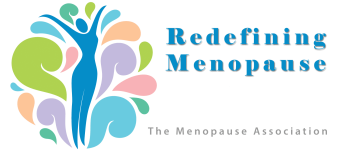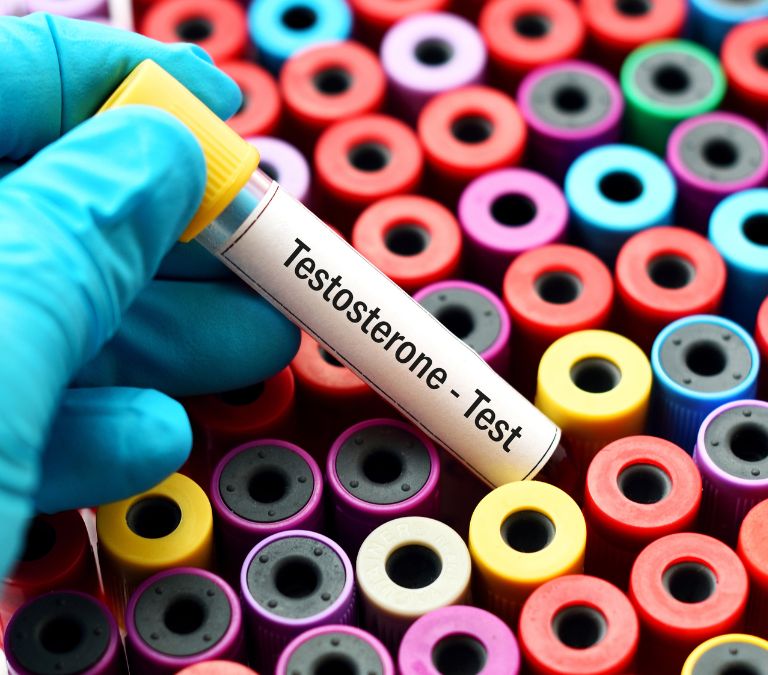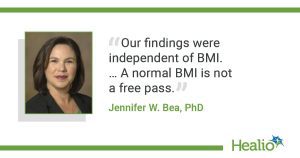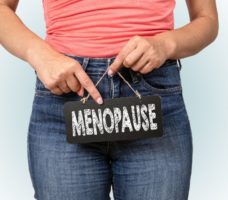When people hear the word “testosterone,” the mind often drifts to masculinity and everything relating to men. Many people (mostly men) do not know that the testosterone hormone is also found in the body of women.
Generally, people with penises tend to possess larger amounts of T-hormones. For women, T-hormones are found in lesser quantities. In males, testosterone is responsible for developing muscles, facial hair, pubic hair, and bass voice. For women, the T-hormone is responsible for enhancing sexual desires and feelings.
The testosterone hormone is an androgen and an important hormone in both men and women. With the importance of this hormone, any form of imbalance may cause complications to the health.
Causes of Low Testosterone in Women
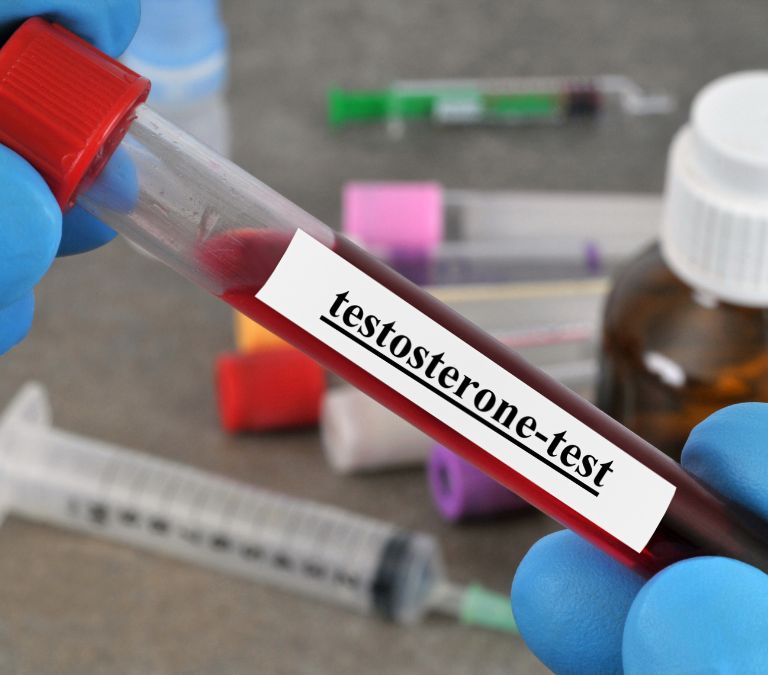
Due to the complexity of the human body, the testosterone hormone is produced in different locations of the body. In every woman of childbearing age, three different locations are responsible for the production of testosterone. They include the ovaries, the adrenal glands, and the peripheral tissues.
When one of these sources becomes dysfunctional, the other sources may not be able to produce enough to measure up to the total produced by all three sources. As a result, a low testosterone level will become imminent.
In menopausal women, however, low testosterone levels are, in most cases, caused by the gradual and eventual cessation in the ability of the ovaries to function. With the inefficiency of the ovaries and aging, menopausal women are the most affected group regarding low testosterone.
Menopause and Testosterone
Testosterone is very important for women. The T-hormones play an important role in developing muscle mass, bone density, and energy levels. In general, testosterone helps us stay strong with libido. When the levels of T-hormones go down, it could lead to loss of strength and general weakness. Low testosterone levels are very common in menopausal women, and here is why.
Besides being the producers and storage location for eggs, the ovaries are the main secretors of major sex hormones like estrogen, progesterone, and testosterone. During menopause, the ovaries lose the ability to produce eggs and, in turn, lose the ability to produce these sex hormones.
Sometimes, the ovaries still produce these hormones even after getting into menopause. While this is true, it is important to know that the production capacity of these ovaries, in most cases, reduces by half or even lower than that. Providing the body with the testosterone it needs then becomes ineffective.
As an added disadvantage to menopausal women, fluctuating hormones cause almost every symptom experienced by women during menopause. From common cases like hot flashes and night sweats to less common cases like certain cancers and eye dryness, the period of menopause is often plagued with varying degrees of discomfort in the form of symptoms. It is important to know that hormonal levels also decrease naturally with age. This reduction means that menopause or not, a drop in testosterone levels is imminent.
Women in their early 50s or women who are just transitioning into menopause are usually the most affected for a reason; as you go into menopause and your body experiences worrying fluctuations in hormonal levels for the very first time, your body might find it very difficult to adapt quickly to sort of regulate the general metabolism associated with your declining hormones. As you go into menopause, your body adapts, which is why the symptoms stop or decrease in postmenopausal women.
Symptoms of Low Testosterone Levels
Compared to men, the testosterone level in women is relatively small. When the testosterone level goes down in men, the symptoms are usually more severe than in women. From infertility to swelling of breast tissue, the low testosterone level in men can be an absolute disaster. Women, who have reported severe symptoms of testosterone levels during menopause, are a small unit of menopausal women to a larger proportion of men.
Generally, the main symptom of low testosterone in women is infertility. However, menopausal women are already past childbearing age, so the infertility problem shouldn’t be something to worry about. As stated earlier, one primary function of the testosterone hormone is the enhancement of sexual desire.
When testosterone levels decline during perimenopause, lack of sexual desire is, most time, imminent. Women with low testosterone levels often find it difficult to enjoy sex or fancy anything sexual, a huge blow to our sex lives.
Of the hormones released by the eggs, the testosterone hormone stands out in the promotion and enhancement of sexual desire and the strengthening of muscles and bones. For this reason, women experience low libido during perimenopause. Many women in menopause experience general weakness and are urged to retire and raise chickens.
Also, perimenopausal women affected by declining testosterone levels may experience depressed mood, unresponsiveness, lack of enthusiasm, sleep disturbances, and muscle weakness.
Managing Low Testosterone during Menopause
Studies carried out on low testosterone during menopause have been quite insufficient. Even with the major innovations in the medical industry, studies on menopause have been vastly plagued by poor funding and the idea that it isn’t a relevant/important thing to look into. In the United States, doctors are usually more enlightened on the effects of excess testosterone on the body. When it comes to low testosterone, our medical experts don’t know enough.
Managing low testosterone during menopause has been shifted from medications to lifestyle and diet changes. Today, low testosterone medications are still developing, and the existing ones aren’t as effective as doctors want them to be.
How Lifestyle Changes Can Improve Your Testosterone Levels
Different women react differently to menopause. For some women, transitioning into menopause is smooth and hitch-free. For some other women, menopausal transitioning is hell. For this reason, it is advised that you talk to a doctor and get the best possible option for you. Menopause is a delicate phase of life, and our actions will make it worse or better.
Lifestyle changes have been adopted by many menopausal women today to provide them with some degree of relief from menopausal problems. Generally, doctors will usually suggest medications for treatment. However, many women, myself included, aren’t entirely comfortable with medications based on trial-by-error procedures and side effects. Oh, the side effects; let’s not even talk about the side effects, at least not yet.
Here are some of the best lifestyle changes to help menopausal women experiencing low testosterone.
Exercises and Physical Activities

Exercises are important for your general well-being. Today, menopausal women worldwide are actively engaging in exercises and other physical activities to help them cope with the stress of menopause. However, it is important to know that exercise for low testosterone isn’t a quick fix; it is a process that requires hard work and commitment.
According to the CDC, 25 percent of women do not exercise, and more than 60 percent do not get enough of it. It means that many women are likely to develop low testosterone during menopause. Many women in the United States plan to retire and live in the countryside to get menopause.
Globally, women see the period of menopause as a time of rest and nothing else. While it is very healthy to have good rest, it is also healthy to work and flex those muscles. Studies have shown that menopausal women who are sedentary and engage in no physical exercise are more likely to die or get seriously sick from menopause-linked illnesses like cardiovascular diseases and even breast cancer.
Studies have shown that while some exercises can cause a significant increase in testosterone, some other exercises could make things even worse by decreasing T-hormones content. The role of exercise in boosting testosterone levels is unusual for many women today.
Studies have shown that exercising more will help boost testosterone levels for women who do not exercise. On the other hand, some studies have also shown that exercising less will help boost testosterone levels for women who have been exercising too much.
Resistance Training
Resistance training involves subjecting the body to lifting objects of significant weight. Exercises under resistance training have been proven to help increase testosterone in women by more than 15 percent. While results from resistance training are more significant in men (more than 20 percent), women have also shown major spikes in total testosterone content.
What makes resistance training unique for women is that it is the only proven exercise routine able to cause a significant increase in testosterone levels. Other exercises like high-intensity interval training have only been proven to increase testosterone in men alone. Other exercises like cardio and meditation do not affect testosterone levels in both men and women.
As a menopausal woman living with low testosterone, resistance training shouldn’t be a daunting task. You don’t have to register for membership at the gym or purchase sophisticated equipment. You have to get some dumbbells and go through rounds of lifting for about 30 minutes, three to four days a week for four weeks. While this procedure has shown greater success in men, women still have a fair share of more than 15 percent increment in testosterone levels.
If you’ve always been a fan of the treadmill, then you should reconsider limiting your running and participation in other aerobic exercises. Generally, menopausal women with low testosterone are advised to do more weight lifting and less aerobic exercises. It is important to know, however, that menopausal women who have normal levels of testosterone are advised to engage in more exercises, both aerobic and anaerobic, to manage other associated symptoms of menopause.
Top 5 Testosterone-balancing Foods

Studies have shown that certain foods can impact testosterone levels in the body. While research in this field remains limited, menopausal women with low testosterone have shown significant results by adopting different dietary patterns. Some foods contain the required nutrients capable of maintaining healthy levels of testosterone.
Adopting diet options for optimal testosterone levels is effective for both men and women. Foods rich in magnesium, vitamin D, and zinc have been tagged as “important” in maintaining healthy testosterone levels.
Dark Leafy Greens
Leafy greens, especially dark greens, are rich in micronutrients that are important for balancing hormonal levels. Studies carried out in Taiwan revealed that people who weren’t regular consumers of dark leafy greens were associated with lower levels of T-hormones.
So many women are gradually reducing the total vegetable content in their meals. Besides its importance in our hormonal health, veggies have proven beneficial for our general health. Since getting to menopause, I have consistently struggled with consuming more greens.
I once drafted a diet plan which I followed; for two days. As I entered the later stages of perimenopause, the symptoms came knocking. After visiting the doctor and turning down several offers of medications, I was advised to include more greens in my diet. With this, I adopted a strategy.
Just in my backyard, I planted several greens I loved eating. Broccoli, kale, chards, celery, you name it! When the leaves began sprouting, I had no problem eating more greens. I consumed more salads and didn’t have to go to the farmer’s market to get these greens. Menopausal women are advised to eat more DARK leafy greens. Some examples of dark leafy greens include broccoli, collard greens, spinach, turnip greens, lettuce, kale, and watercress.
Vitamin D Fortified Foods
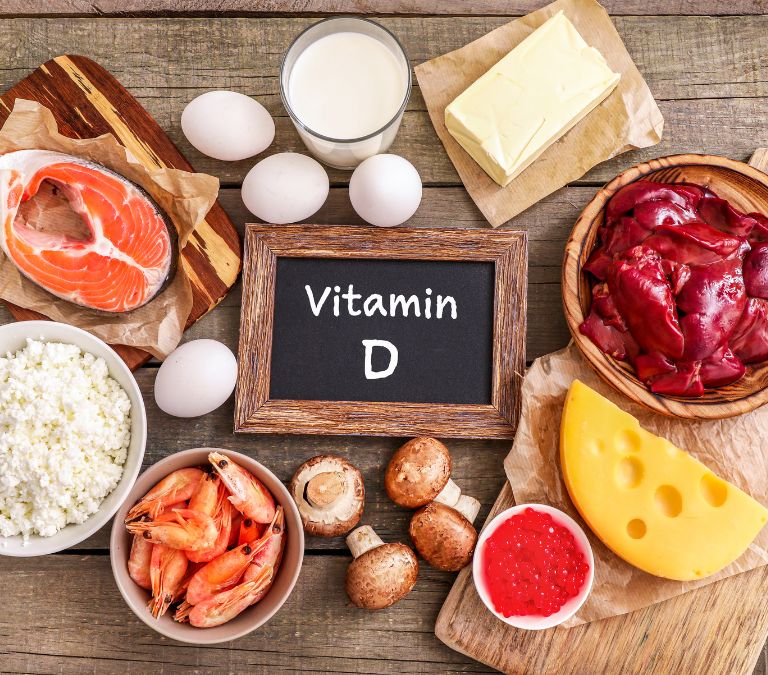
Studies have shown that vitamin D and testosterone levels in women are connected. It has been observed increasing the intake of vitamin D might be enough to regulate hormonal levels by creating a balance in testosterone levels. While research on this remains underdeveloped, positive results have been observed in a few. In others, an increase in vitamin D supplementation had no effects on testosterone levels.
Different women react differently to menopause. Menopause is not a one-size-fits-all concept. While some treatment options may be effective enough for some women, they might have negligible effects on others. For this reason, you must speak to a doctor and get the best medical advice and options before settling for any practical management option for any menopausal symptoms.
Foods rich in vitamin D include fish, egg yolks, milk, certain mushrooms, and salmon.
Foods Rich in Magnesium
From research on the effects of magnesium on testosterone levels, it has been proven that magnesium can increase testosterone levels. With magnesium in the body, testosterone is prevented from binding to a binding protein. When this happens, there tend to be more free testosterone levels in the blood. Free testosterone is a type of testosterone that is biologically ready to be utilized by the body. This way, there are more Testosterone hormones in the body.
Additionally, magnesium is believed to reduce oxidative stress. Together with inflammation, oxidative stress facilitates the reduction of testosterone. When we take in foods rich in magnesium, oxidative stress is greatly reduced, which may positively affect the maintenance of healthy testosterone levels.
Foods rich in magnesium include dark green vegetables, fish, nuts, and beans. Generally, fatty fish are very important foods for healthy hormonal levels.
Foods Rich in Zinc
The effects of zinc on testosterone levels remain quite controversial. While some people have shown positive effects, testosterone levels in others have remained unchanged. However, some studies on men with low testosterone have shown that a daily intake of 30 milligrams of zinc could increase testosterone levels. This research has shown that women might react positively but in smaller amounts.
For menopausal women getting enough zinc from consuming foods rich in zinc, taking zinc supplements could be unnecessary as it may show zero effects. Foods with high zinc content include oysters, chicken, oatmeal, beans, yogurt, and beef. Many medical experts advise against using zinc supplements, especially in menopausal women, because taking too much zinc could cause symptoms like nausea, abdominal cramps, headaches, and diarrhea.
Foods Containing Boron
The effects of boron on low testosterone have been compared to that of magnesium. A study conducted in 2015 observed that taking boron supplements for just one week, with a dose totaling 6mg, could trigger the metabolism of free testosterone in the body.
Remember that free testosterone is testosterone ready to be used by the body. IMCJ published this review and observed that taking boron could increase free testosterone levels by more than 20 percent. The review released by ICMJ also reported that taking boron dosage could give way for more free testosterone to bond with its binding proteins in the blood.
To conclude on the effects of boron on low testosterone, we can say boron works very well as a supplement for people with low testosterone. Like other supplements, menopausal women are advised to see a doctor before opting for boron supplements. An overdose of boron could result in cardiovascular diseases, headaches, vomiting, seizures, and indigestion.
Boron supplements are available in clinics and pharmaceutical stores in the US, the UK, and Canada. Foods containing supplements include all leafy greens, dried beans, milk, potatoes, apples, grains, raisins, and prunes.
Testosterone Therapy
Testosterone therapy is a hormone therapy in which testosterone is taken into the body to help with declining testosterone levels. Until now, testosterone use in women has been plagued by myths and unproven statements that feel factual.
FAQs on Testosterone Therapy
Here are the most common questions on the use of testosterone therapy for women
How safe is Testosterone Therapy?
It is believed that the use of testosterone in women has not been proven to be safe. However, it is important to know that testosterone has been used safely in women for over six decades. Testosterone therapy is safe for menopausal women experiencing low sex drive, with menopause linked to being the cause. For women with surgically-induced menopause, testosterone therapy can also be appropriate.
Is Testosterone Therapy FDA-approved?
As stated earlier in this article, medications for testosterone deficiency in women haven’t been enough. In the US, testosterone therapy on women is often for off-label use because the FDA hasn’t approved testosterone preparations for women. Testosterone therapy for women is sometimes claimed to cause certain cancers in the long term. However, this claim is largely disputed.
Does Testosterone Therapy Induce Masculinity in Women?
So many people believe that testosterone can make a woman more masculine. Since the T hormone is often regarded as a male sex hormone, the claim that it could make a woman more masculine is false. While some women have reported unwanted hair growth cases, there’s no strong evidence that it induces masculinity.
Is T-therapy better than Lifestyle Changes?
To help with your symptoms, doctors will usually advise you to opt for lifestyle changes. Different women react differently to menopause. As such, it is often left to your doctor to suggest the best treatment option for you. If testosterone therapy is predicted to be the best option for you, then you must discuss with your doctor to get the cons associated with this medical procedure.
How is testosterone therapy administered?
Testosterone therapy is usually administered through gels, pills, and creams. All administration forms give similar results, so deciding shouldn’t be much of a problem.
Many menopausal women have taken testosterone therapy and have experienced significant positive changes in the symptoms associated with low testosterone. Sexual dysfunction during menopause is not always caused by low testosterone. When you go to the clinic, the doctor will not automatically conclude your problem is low testosterone.
Research on the use of testosterone therapy for women remains limited, and as such, lifestyle options like exercises and diet plans are advised as alternatives.
Conclusion
Menopause is a natural phase of every woman’s life, not a death sentence. So many women today go into menopause and do not know how to go through it. For this reason, we see women today handling it in not-so-good ways. No matter how fit and athletic you think you are, you must seek answers from people qualified enough to give these answers; doctors, of course. This way, we can ensure the optimal balance in our journey through the complications of menopause.
